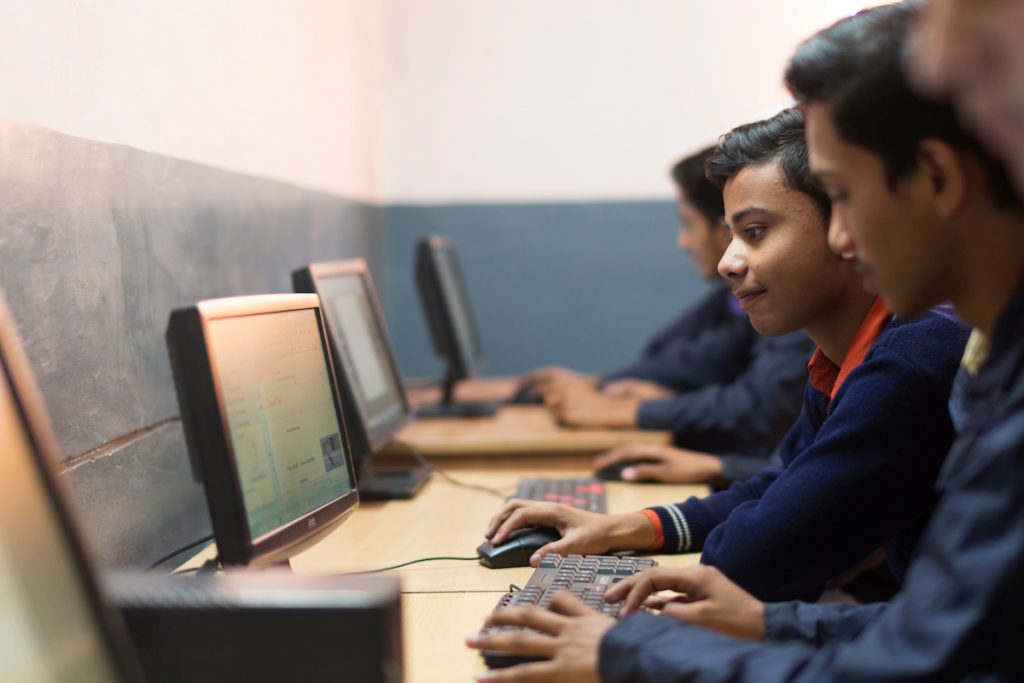The dropping of high school lessons on secularism, democratic values and religious tolerance for 2020-21 by India’s ruling pro-Hindu Bhartiya Janata Party (BJP) has aroused suspicion and concern among some.
The country’s Central Board of Secondary Education (CBSE) said on July 7 that revisions of some high school syllabuses have been implemented to lessen the burden on children who have not attended schools since March 24 due to the pandemic lockdown.
As part of that, economics and political science courses for grades 9 to 12 have been reduced by 30 percent. Topics focusing on federalism, citizenship, nationalism, secularism, new social movements in India, and regional aspirations have been cut.
“The revision of syllabi is a measure taken due to the extraordinary situation prevailing in the country and in different parts of the world,” the CBSE said in a statement. “Considering the importance of achieving the level of learning, the syllabus has been rationalized to the extent possible by retaining the core concepts,” it said.
But several religious, civil and human rights groups have voiced concern that the BJP are using the pandemic as an excuse to drop certain subjects so to further undermine religious tolerance and promote Hindu dominance.
“I am not surprised at the decision of this government. It is very much in tune with their ideology,” said A.C Michael, a Christian lawyer and National Coordinator of United Christian Forum. “They have always been against our country’s spirit of diversity and federalism which in a way is the foundation stone for the unity and democracy of the country.”
Father Maria Charles, who is national secretary for education for the Catholic Bishops Conference in India (CBCI), said the government’s decision appears to be part of a concerning trend.
“I don’t know how much scientific temper has been used in reducing this syllabus and taking away certain subjects from the text books. Certainly, the church organizations are concerned about it,” Father Charles said.
“We would like to know what logic has been adopted in keeping the certain portions and omitting the others out,” he said.
“This thing has to be studied actually before we can jump to any conclusion. We are keeping an eye on it,” the priest added.

Christian educationist Dr Michael Williams is not concerned by the government’s move.
“I have studied the documents very clearly. The entire exercise is restricted to this academic session only. There is nothing permanent in what they are doing. It is a temporary restriction,” said Williams who is the dean of Mount Carmel School in New Delhi.
“The topics that have been deleted are repeated every year with different levels of intensity. On its face value, it is a positive step that a child’s burden is being reduced. I don’t want to draw the conclusion as the government circular is for one year only,” he added.
However, Ruchika Singh, a civil society activist based in Mumbai believes the decision will have far reaching consequences.
“We have seen BJP leaders, who are even the ministers in this government, speaking against secularism, religious tolerance and democracy. Now through such underhand means, they are implementing their agenda,” she said.
Ruchika said that such decisions are being taken by the government very tactfully and in a gradual manner.
“This all is a precursor to what is in the offing for this country. It is worrisome and demands our collective approach,” she said.
The U.S. Commission on International Religious Freedom (USCIRF) in its 2020 annual report said India is among countries of particular concern with religious minorities under increasing assault. The report said the Indian government “allowed violence against minorities” and also “engaged in and tolerated hate speech and incitement to violence.” The Indian government accused the USCIRF and being “biased,” adding that the commission’s “tendentious comments against India are not new.”
Hindus constitute 80 percent of India’s population at 1.3 billion while Muslims make up 14.2 percent, Christians 2.3 percent, and Sikhs 1.7 percent while other religious groups such as Buddhists, Jains, Zoroastrians (Parsis) make up the balance.






